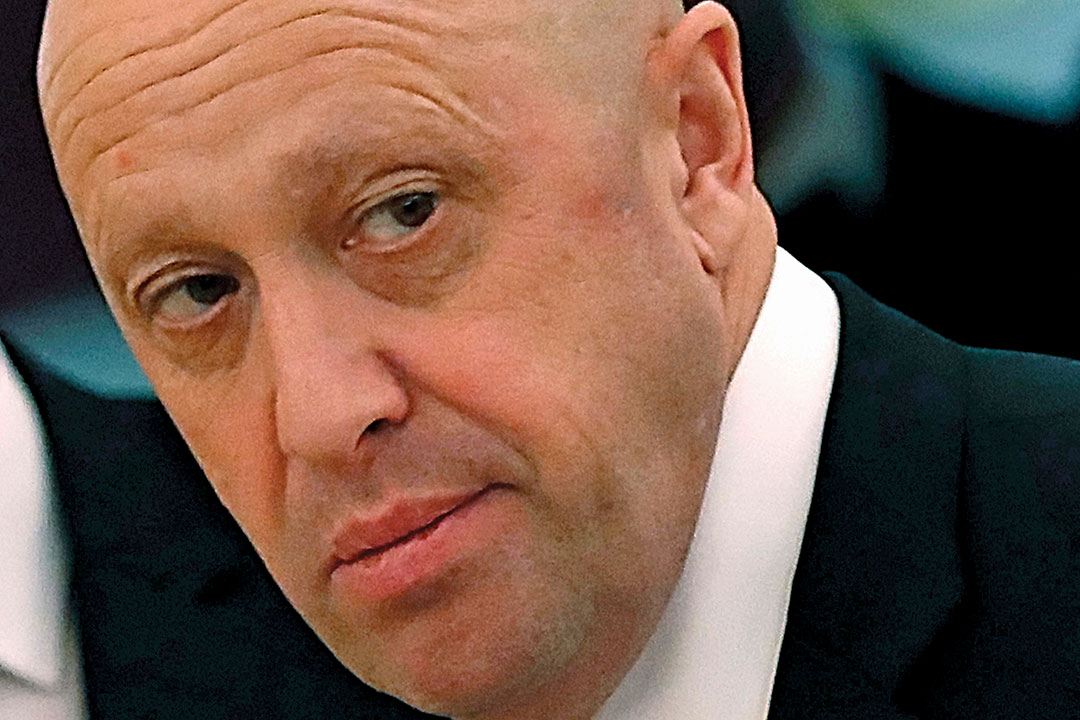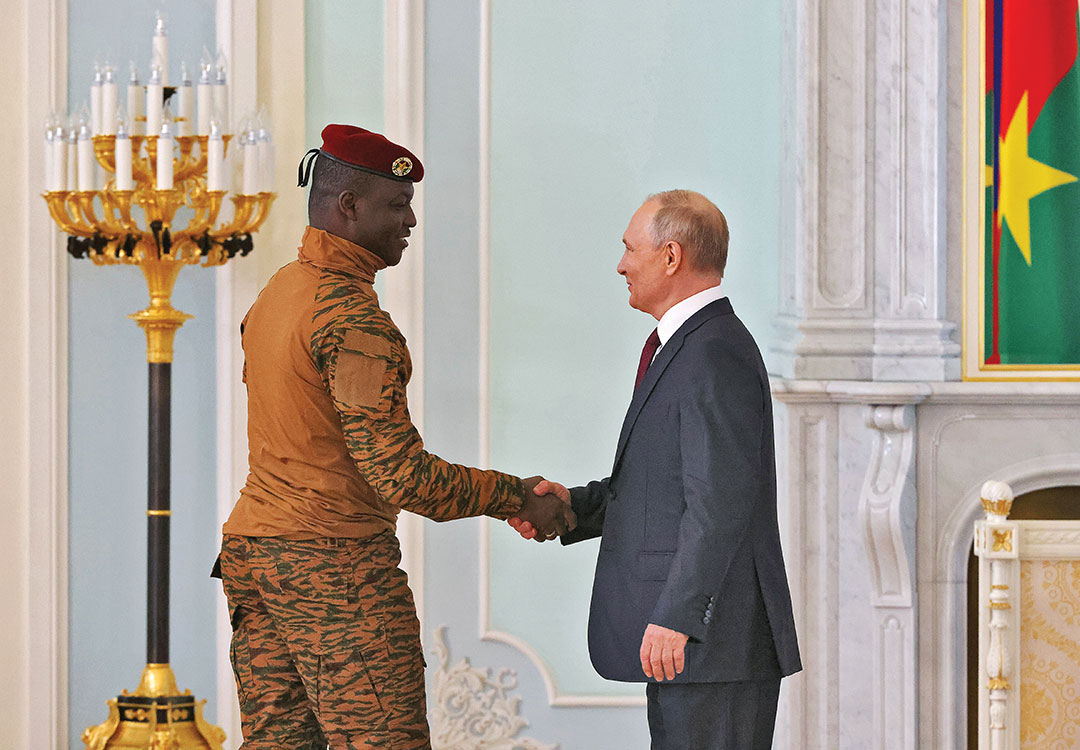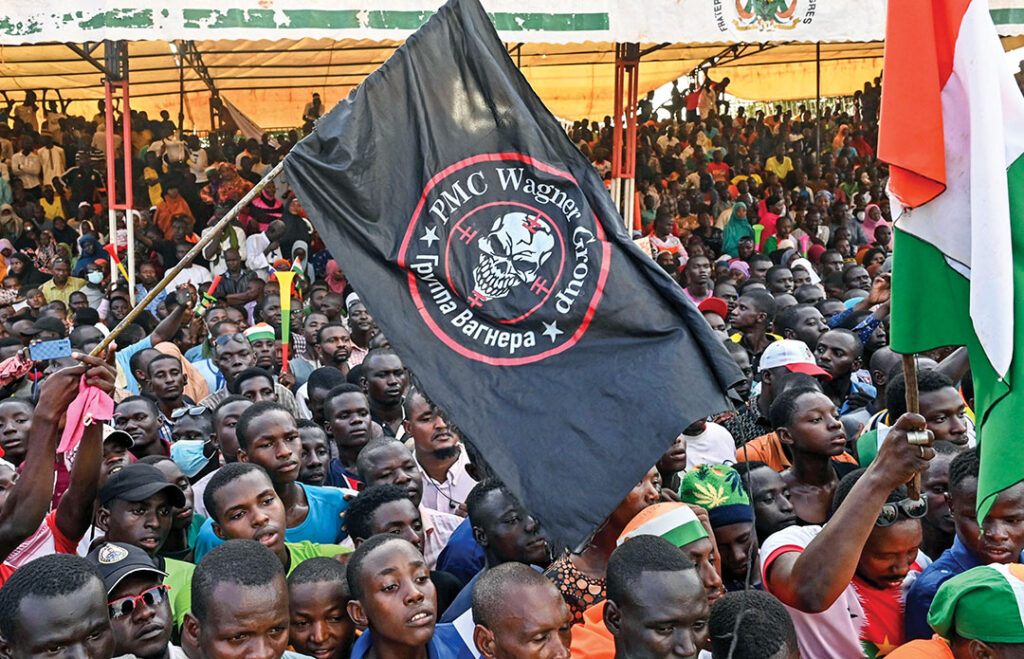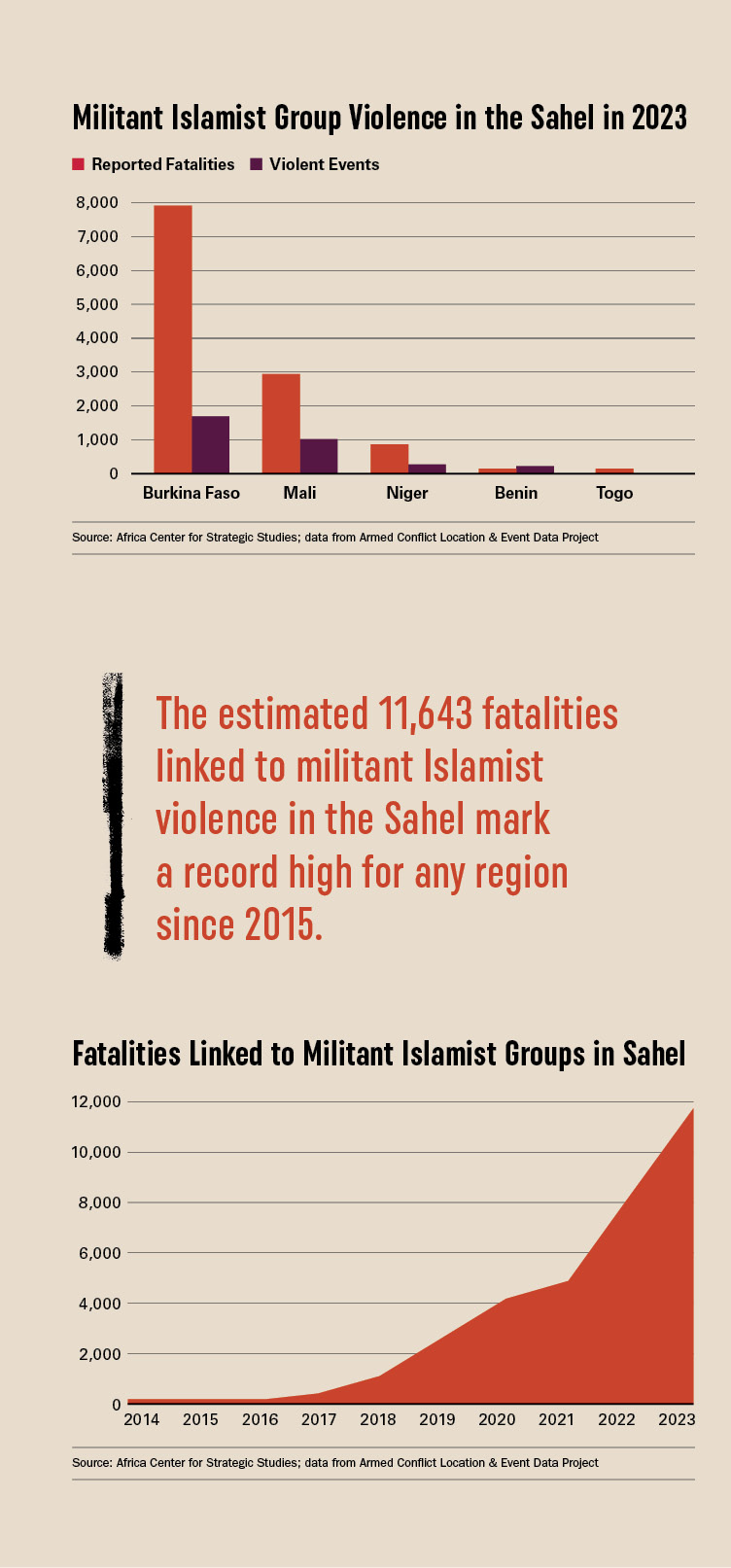ADF STAFF
As Russia’s Wagner Group expands its reach across Africa with promises of security and support for authoritarian leaders, nations that invited the mercenaries suffer from increased exploitation, violence and instability.
From Sudan in 2017 to Burkina Faso in January 2024, the group’s formula is simple: It targets precarious authoritarian regimes, promises to protect their sovereignty, then begins a lucrative exploitation campaign that even the Russian government has admitted smacks of colonialism.
“The narrative that Russia is pushing is that Western states remain fundamentally colonial in their attitude,” Jack Watling, land warfare expert at the Royal United Services Institute (RUSI), told the BBC. “It’s very ironic because the Russian approach, which is to isolate these regimes, capture their elites and to extract their natural resources, is quite colonial.”
Watling co-authored a February 2024 report for the institute called “The Threat from Russia’s Unconventional
Warfare Beyond Ukraine, 2022-24” that addresses how Russian mercenaries advance Moscow’s interests in Africa at the expense of nations on the continent and their former allies.
Wagner, now rebranded as the Africa Corps, cozies up to authoritarian leaders and promises them what the RUSI report calls a “regime survival package.” Russia provides military support, training, security services and political operatives to drum up domestic support through elaborate disinformation campaigns.

In exchange, Russia claims favorable extractive rights for oil and natural gas in Libya, gold and lithium in Mali, gold in Sudan, and uranium in Niger. Such deals bolster Russian government coffers while keeping energy assets out of the hands of Western powers, such as France, which depends on uranium to run its nuclear power plants.
“The result is that Russian security partners initially gain a sovereign capability through Russia’s mercenaries and medium-term personal security,” the RUSI report states. “However, they also become dependent and begin to lose access to alternative security providers. In the medium to long term, the economic concessions Russia demands risk creating an extremely unequal relationship, in which Moscow extracts much more than it offers.”
Wagner mercenaries long were thought to be separate from Russian government control, but the RUSI report belies the notion that the Wagner Group ever was a mere private military company. In fact, Russia’s Ministry of Defense funded Wagner directly and through contracts that exceeded $10 billion between 2014 and 2023.
“From May 2022 to May 2023 alone, Russia spent around $1 billion on wages and compensation payments to Wagner’s fighters,” the report states. That’s 77% of what Russia spent on its national health system in 2022.
“The ‘Wagner Group’ never existed as an official entity,” the report states. “Fighters were employed by various companies. But Wagner became the personnel’s corporate identity anyway.” The connective tissue of its various operations was Yevgeny Prigozhin, a crony of Russian President Vladimir Putin, who ran the organization.
Since the mercenaries fought in Syria, Ukraine and then moved to Africa, “Moscow has followed a pattern of parachuting in to prop up politically isolated leaders facing crises in regionally pivotal countries, often with abundant natural resources,” according to a 2021 paper for the Africa Center for Strategic Studies (ACSS) by Joseph Siegle and Daniel Eizenga. “These leaders are then indebted to Russia who assumes the role of regional powerbroker.”
After Prigozhin’s death in a mysterious plane crash in August 2023 — two months after he led, then halted, a mutinous march toward Moscow — Wagner rebranded as the Africa Corps. Most notably, the new group has been subsumed by the Russian Ministry of Defense.
This change is significant because it throws off the cloak of a private business interest and, with it, Moscow’s plausible deniability for mercenary excesses such as civilian executions and other documented atrocities.
Now the Africa Corps paramilitary group promises a menu of security services while preserving a “manageable level of instability” to preserve contracts “while enabling its network of businesses to continue their extractive onslaught on African economies,” according to a February 2024 paper by Dr. Mohammed Issam Laaroussi for Eurasia Review.
Africa Corps services now are administered by the Russian intelligence organization known as GRU and offer mercenary clients the “regime survival package.” In some cases, the approach promises leaders personal protection. Wagner mercenaries have offered the president of the Central African Republic such security services for years. The deal provides economic and political shielding from international backlash from groups such as the United Nations. Also, the host country is offered military training and aid in combating extremist groups.
To bolster governments’ national sovereignty, mercenaries provide internal political support through a sophisticated array of media and propaganda services. Radio stations, social media and even contrived public demonstrations, garnished with Russian flags, work to bolster the credibility of the government in the eyes of its citizens.
However, documented cases of massacres, executions and abuse of civilians have been noted in connection with Russian mercenaries in the Sahel and beyond. This alienates host nations from other military partners in a way that “may not be fully appreciated when cooperation is first agreed,” the RUSI report states.
“Russian objectives are pretty simple: kill opponents to regimes in countries with military juntas or authoritarian leaders and get gold in return from terrified heads of state all too willing to hand it over,” wrote Dan Whitman in an analysis for the Eurasia Program.

Getty Images
A LACK OF SECURITY
Despite Russian mercenaries selling the promise of security, including help in fighting al-Qaida and Islamic State group militants, Sahelian nations have seen no improvements in recent years. In fact, the opposite has been the case.
A January 2024 report by the ACSS shows that deaths due to militant Islamist violence grew by 20% from 2022 to 2023. The Sahel, where Russian mercenaries have been active, saw deaths increase by 43% during that period.
The estimated 11,643 fatalities linked to militant Islamist violence in the Sahel mark a record high since 2015, the report indicates.
Burkina Faso was home to 67% of all deaths related to militant Islamist groups in the Sahel in 2023, more than double the number recorded in 2022. The country led the region for extremist violence for the third consecutive year. Mali accounted for 34% of militant Islamist violence in the region.
Mercenaries helped Malian soldiers conduct drone strikes and raids that killed civilians, including children, Human Rights Watch (HRW) said in March 2024.
“Mali’s Russia-backed transitional military government is not only committing horrific abuses, but it is working to eliminate scrutiny into its human rights situation,” HRW senior Sahel researcher Ilaria Allegrozzi said in a statement.
Islamist extremists in the past decade have killed hundreds of civilians, committed acts of sexual violence, used improvised explosive devices and imposed strict religious requirements on communities. Now that a United Nations peacekeeping mission and other international forces have left, few feel safe about speaking out against atrocities. Residents report brutal violence at the hands of Malian soldiers and their Russian allies.
“Whatever we choose is bad, wherever we go is to face suffering,” said a man from Nienanpela village where, on January 23, 2024, Malian soldiers and Russian mercenaries executed a 75-year-old man, HRW reports. “The jihadists are brutal and have imposed their way of Islam on us, but the military and Wagner [fighters] who are supposed to protect us, what they do is only to kill, loot and burn.”


